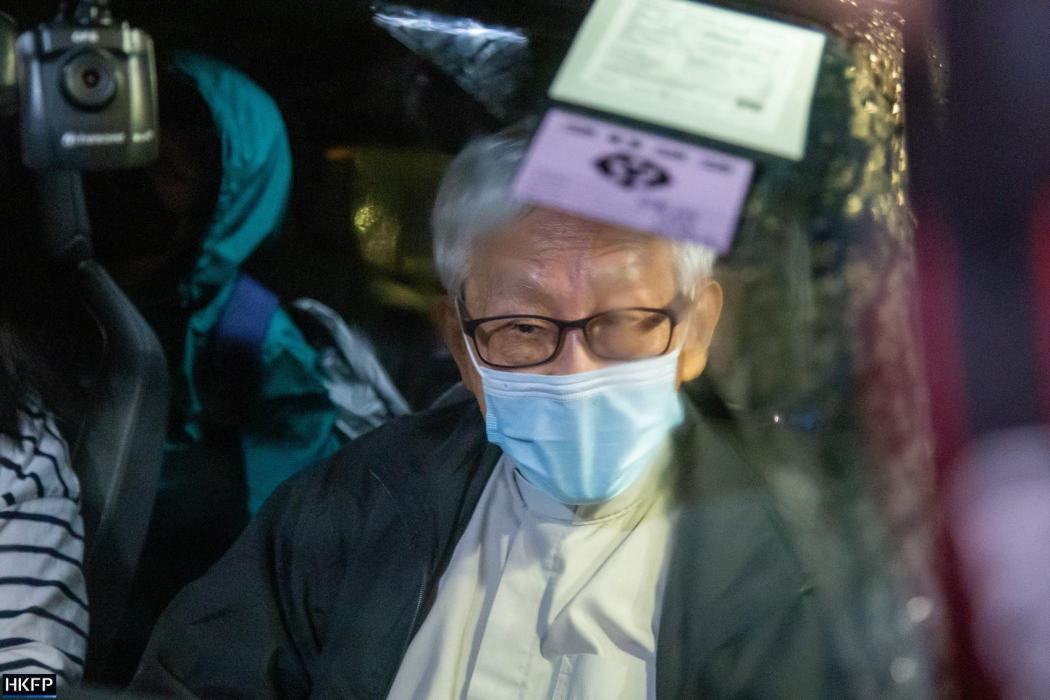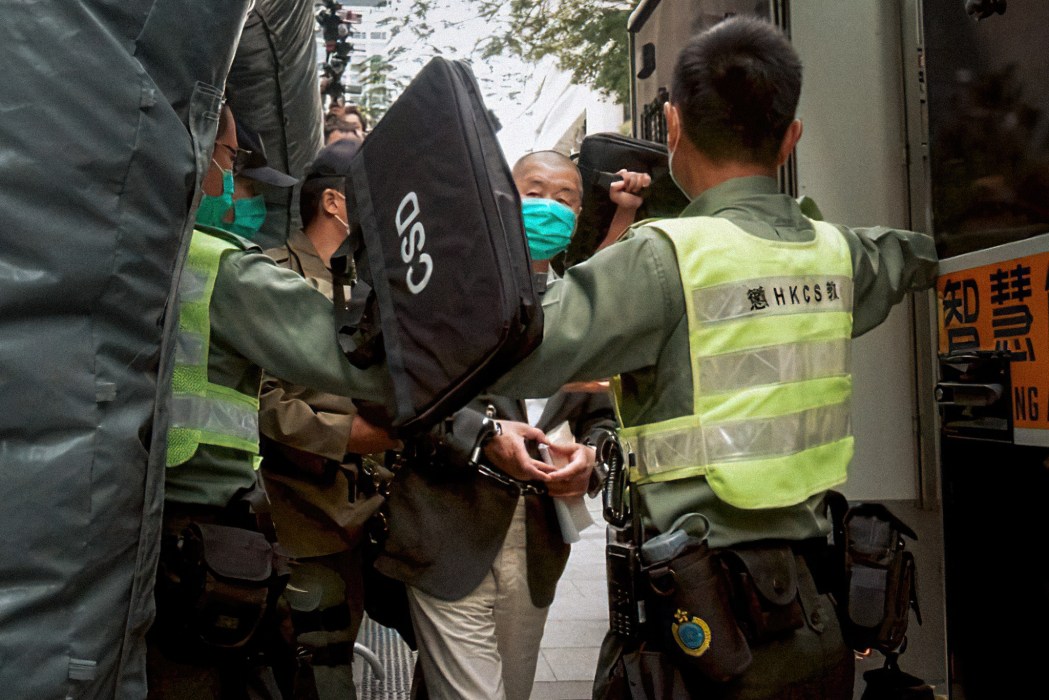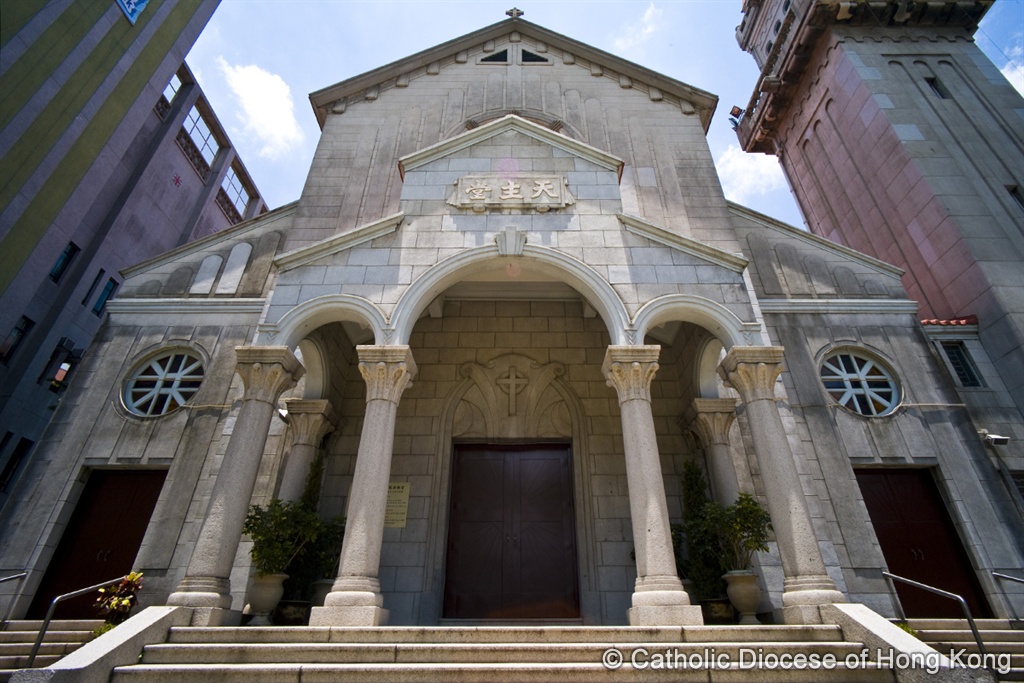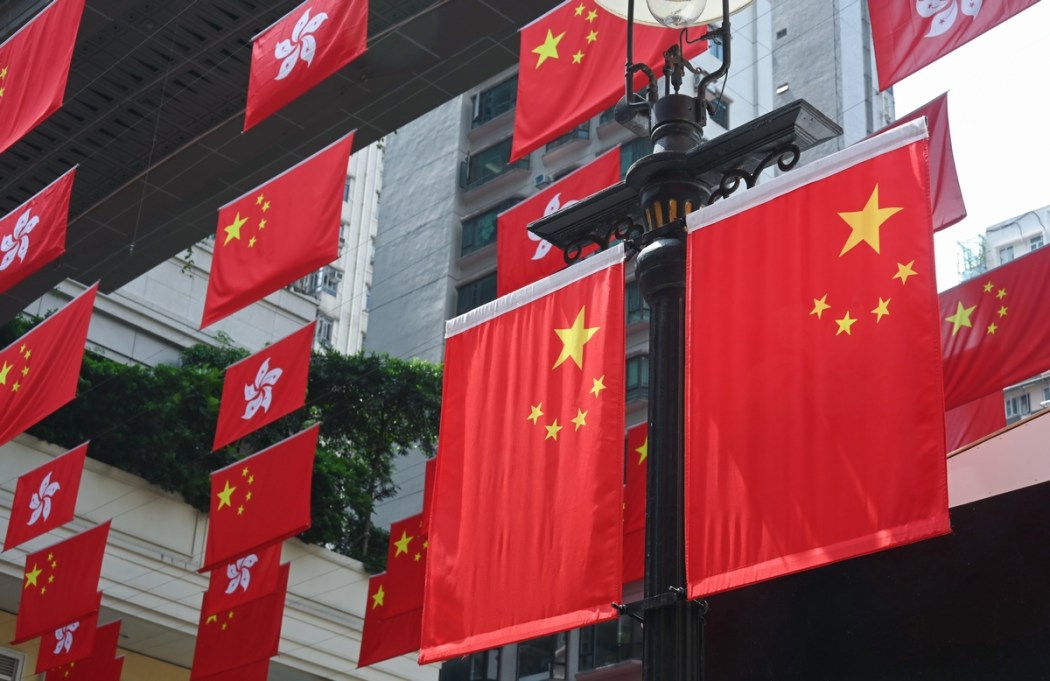Hours after appearing in court over charges linked to a humanitarian fund for Hong Kong protesters, Catholic Cardinal Joseph Zen preached to a packed mass and extolled the virtues of love in the face of perceived persecution.

“We’re in a situation where we’re wary, troubled and facing hardships,” Zen, 90, told his flock at Holy Cross Church in Eastern district in May. “There are many of us throughout history who have been persecuted for their faith. We’re praying for them today in particular.”
Shepherd and critic
Zen was arrested that month by police officers from the city’s National Security Department – along with four other trustees of the now-defunct 612 Humanitarian Relief Fund, including prominent barrister Margaret Ng and singer-activist Denise Ho – for alleged conspiracy to collude with foreign forces. They were granted bail and have not yet been charged.
However, the five trustees, as well as the fund’s secretary, were separately accused of failing to register the fund as a society. All pleaded not guilty to the charge.
The fund aided hundreds of demonstrators during the 2019 anti-extradition bill unrest by providing legal assistance, funds for psychological counselling, medical treatment and emergency relief.

Zen and his five co-defendants appeared in court on Friday. They were found guilty under the Societies Ordinance, and fined up to HK$4,000.
The cardinal is a prominent figure in Hong Kong’s 400,000-strong Roman Catholic community and his arrest sparked shockwaves both in the city and overseas. The Vatican expressed concern while overseas rights groups and governments were more forthright in their criticism.
Zen’s arrest came at a sensitive time, as the Vatican sought to renew a controversial agreement with Beijing. The deal allows politically loyal bishops to be selected by mainland China and then approved by the Vatican. In turn, China recognises the Holy See’s authority within its Catholic community.
Critics believe the deal betrays the Catholics in China’s underground churches, who face huge personal costs for staying loyal to the Holy See. The continuation of the agreement could also lead to Vatican severing diplomatic ties with Taiwan.
Officially an atheist and Communist state, China retains a high level of control over all forms of organised religion. In 1957, the Chinese government created its own state-sanctioned Catholic Church which appointed its own bishops and asserted it influence on its theology. Millions of Catholics in the mainland, still loyal to the Holy See, are forced to worship underground under threats of harassment and imprisonment by authorities.

The Hong Kong Catholic diocese operates as a separate entity from China’s churches under the One Country, Two Systems framework, while the Vatican currently has no diplomatic relations with Beijing.
Born in 1932 in Shanghai to a Catholic family, Zen arrived in Hong Kong in 1948 as a refugee during the Chinese Civil War. At a young age, he joined the Salesian order and was ordained in 1961 in Turin, Italy.
Zen began his career in the Hong Kong diocese and eventually became bishop after the death of his predecessor Cardinal John Wu. He was appointed cardinal in 2006 by Pope Benedict XVI.
Long before his involvement in the 612 Humanitarian Fund, Zen was outspoken about the city’s democratisation and social justice.
As early as 2003, Zen and some fellow Catholics were at the forefront of opposition to Article 23, the Hong Kong government’s attempt to pass national security legislation as required by the Basic Law.
Over 500,000 people rallied against the plan in a historic demonstration and it was shelved. In 2020 Beijing imposed its own version of a security law on the city.

Zen also forged a close relationship with Jimmy Lai, owner of the shuttered Apple Daily newspaper and a fellow Catholic. Lai is in custody and facing a possible life sentence under national security charges. His pro-democracy newspaper was forced to close after its newsroom was raided by hundreds of police officers.
Frances Hui, a political activist in exile who studied at a local Catholic school affiliated with the Salesians, told HKFP she recalled Zen as a very gentle and caring figure.
“He taught us at a young age, ‘Fret not, for God has his plans’. That built up my confidence in life,” Hui said, adding that his influence had been felt across Hong Kong’s fragmented pro-democracy movement.
“Some of my acquaintances who aren’t religious are moved by his dedication”, she said. “He could have stepped back, but he stayed true to his words even at such an old age.”
A ‘prophet’ among the flock
Catholicism in the former British colony is often associated with the middle class and traditional elites. Former chief executive Carrie Lam and her successor John Lee, who both played a key role in cracking down on pro-democracy protests in 2019, are Catholics.
Nonetheless, the Hong Kong diocese has long been vocal about campaigns for democracy. Some churches offered to shelter protesters fleeing from police in 2019.
Kevin Yam, activist lawyer and former convenor of the Progressive Lawyers Group, now based in Australia, recalled Zen as an omnipresent figure who was never tone-deaf or out of touch.

Yam praised Zen for his human rights advocacy, especially when the church’s reputation has been shaky in parts of the world.
“Having someone like Zen fighting for social justice and human dignity in Asia makes me feel the church has not yet fallen,” Yam told HKFP. “The fact that Zen works hand-in-hand with LGBT activists like Denise Ho shows he’s someone who overlooks trivialities.”
Eric Lai, a research fellow at the Center for Asian Law at Georgetown University, credits Zen’s tenure for enriching the church and bringing ordinary Catholics closer to the city’s public affairs.
Zen’s role as a bridge between the church and the pro-democracy movement gave him almost prophetic status, he said, recalling how his Catholic faith and Zen’s involvement led him to join the 2003 rally.
“Article 23 had the potential to undermine the city’s freedom. As Catholics, we discussed this issue deeply in our parish and educated the community about it. By both faith and conscience, there’s no way we would have supported the Article,” Lai told HKFP.
Zen, an outspoken advocate for social justice and democracy, frequently appeared at rallies and petition-signings and led a series of high-profile hunger strikes.
In 2012 he campaigned against a proposed national-education curriculum, fearing that schoolchildren would be brainwashed to “blindly adore” Beijing’s version of Chinese history.

Zen also played a prominent and fervent role in the 2014 Umbrella Movement. He was on the scene when police fired tear gas at demonstrators, urging the crowd to stay calm and comforting students shaken by the clashes. He had called for Hongkongers – Catholics and non-Catholics alike – to march in the months leading up to the main protest and often visited activists arrested after 2014 or 2019, or under national security charges.
Speaking under a pseudonym, Vanessa Wong, a 21-year-old studying in Australia and a practising Catholic, praised Zen’s prominent role in the democratisation drive despite his age.
“I highly respect him for encouraging us to actively pursue a political future for Hong Kong and our future generations,” Wong told HKFP via text message. “Having an activist of his calibre is important because his influence can push us further.”
Zen’s unapologetic stance has made him a target for Beijing propaganda outlets. Conspiracy theories accusing him of regularly benefiting from dubious political funds and colluding with the CIA have long circulated on the internet.
Francis Au, 32, a former civil servant who is bound for the UK and no longer involved with the Catholic faith, sees the elderly clergyman as one of the few religious leaders who spoke out for the city’s democracy and the younger generation to a worldwide audience.
“Judging from his actions, he has done a lot, unlike many religious leaders who are unwilling to take any political stance,” Au said.
‘Timing isn’t right’
Zen’s fiery nature puts him at odds with conservative elements of the diocese who shun politics. Some of these find it hard to navigate political “red lines.”

Caroline Au Yeung, 30, who also used a pseudonym, left the church in 2018 over the Vatican’s perceived cosiness with Beijing.
While she regards Hong Kong’s churchgoers as reluctant to speak out, she says the outspoken Zen is the exception.
“Cardinal Zen is doing his best to make things right, regardless of the consequences,” Au Yeung said. “He even urged us to pray for his attackers, which is absolutely admirable.”
Citing a letter dated 2007 from Pope Benedict at the mass in May, Zen criticised the Vatican’s deal with Beijing.
“The Vatican may have good intentions, but [the deal] is unwise. There is an urgency to bring unity but the timing isn’t right,” he said during the homily.
Zen flew to the Vatican in late 2020 in an attempt to persuade Pope Francis to reconsider the agreement, but to no avail.
A 32-year old, who asked to be called Andrew Szeto, has known Zen since secondary school. He believes the Cardinal’s experience of fleeing Communism gives him an insight which other clergymen do not have. Szeto described the Holy See’s priorities as “misguided.”
“If we are to establish ties with Chinese-sanctioned churches, we need to consider whether we’re compatible. But if one side is unwilling to be genuine, what we get is one-sided appeasement,” Szeto said.

While he still sees room for manoeuvre, this was shrinking and political pressure would only intensify.
“This grey area is getting narrower to the verge of non-existence; everyone needs to choose between survival or standing up for the truth.”
‘Pure gold in burning flames’
The Hong Kong diocese cancelled this year’s vigil mass for victims of the Tiananmen Massacre for fear of breaching the national security law. Last year’s vigil attracted pro-Beijing political groups who hung banners outside the venues calling the diocese “a cult” and the vigil “subversive.”
The government insists that Zen’s arrest was in accordance with the law and unrelated to religion. Secretary for Security Chris Tang dismissed criticism from foreign countries as a “classic smearing campaign.”
“If we did not act in accordance with the law because of one’s role in the Holy See, then I think it would actually breach the Vatican’s principle of justice,” Tang said during an interview with the South China Morning Post.
Lee, while he was still chief executive-elect, said the message was clear to Hong Kong people and to the wider world. “There will be people whose background means they have a special kind of support, but if their behaviour involves offending against the law, it must be handled in accordance with the law.”

“What happened in 2019 made us realise that there are acts endangering national security stirring up trouble… things that breach national security must be handled in accordance with the law.”
Despite the pressure, Zen still offers a message of peace and hope. At the mass HKFP attended, he told believers that trials and tribulations – or even martyrdom – on account of faith are common.
“It may seem nothing has progressed, or even getting worse. But adversity makes us more refined, like pure gold emerging from the flames.”
Support HKFP | Policies & Ethics | Error/typo? | Contact Us | Newsletter | Transparency & Annual Report | Apps
Help safeguard press freedom & keep HKFP free for all readers by supporting our team
























